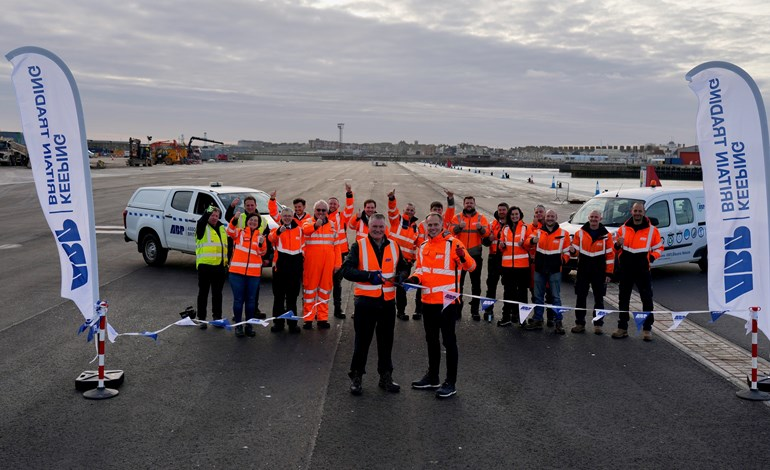
Associated British Ports (ABP) has announced the completion of its Lowestoft Eastern Energy Facility (LEEF), which is set to serve the offshore wind sector.
The £35m infrastructure project, supported by the Town’s Fund, has officially been handed over by contractors McLaughlin & Harvey, marking a new era for Lowestoft and its role in the Southern North Sea (SNS) energy sector.
Purpose-built to meet the growing demands of the offshore energy industry, LEEF has been built to support operations and maintenance (O&M) activities and construction phase requirements.
This state-of-the-art infrastructure strengthens Lowestoft's position as a key hub for offshore wind and energy markets, while creating significant opportunities for regional growth and sustainability, ABP said.
Julian Walker, chief commercial officer and regional director for Wales and short sea ports, said: "LEEF is a pivotal development for Lowestoft and will help us to meet the growing demands of the offshore energy industry.
"Its completion marks a major milestone in the port’s evolution as a hub for supporting this vital industry and in ABP’s goal of enabling the energy transition.
"LEEF will build on the vital role the Port of Lowestoft is already playing in offshore wind, as the base port for SSE’s Greater Gabbard and SPR’s EA ONE wind farms.
"Its adaptable infrastructure will also ensure ABP’s readiness to support future projects such as Sizewell C and other emerging industries.
"We look forward to continuing to develop for the future in the region through supporting both existing and new projects with world-class facilities."
Key features of LEEF include 345m of quayside with three deep-water berths (7.5m draft), with capacity to accommodate Service Operation Vessels (SOVs) for uninterrupted operations at all tides.
It also boasts up to 8 acres of operational and storage space, adaptable for covered and open storage, marshalling, and equipment laydown for O&M and future construction phases.
There will also be 6 crew transfer vessels (CTV) berths, each equipped with utilities including water and power, with the infrastructure to add comms and bunkering.
Finally, there will be future-proofed infrastructure to support alternative fuels and shore power, aligning with ABP’s commitment to sustainable operations.